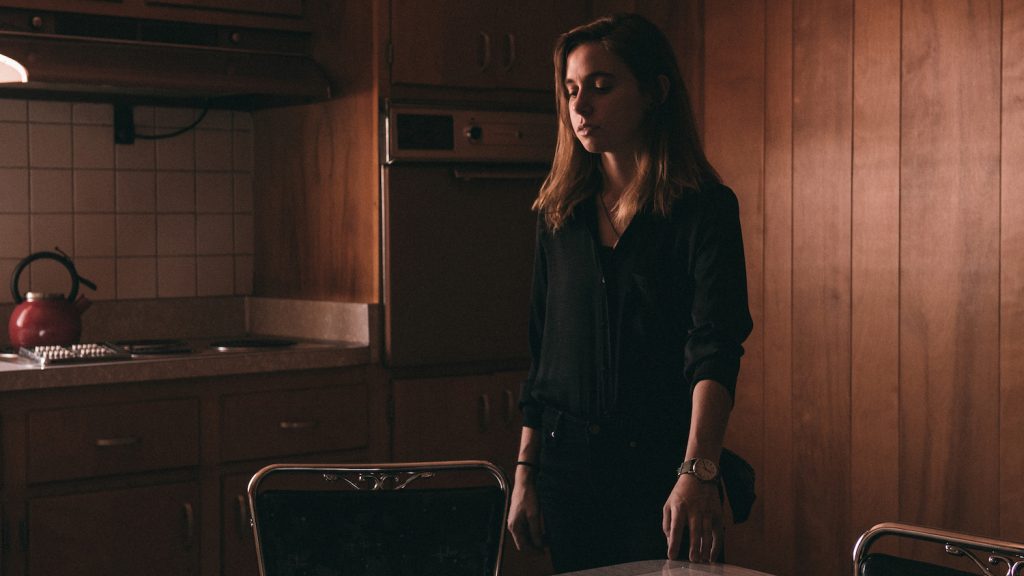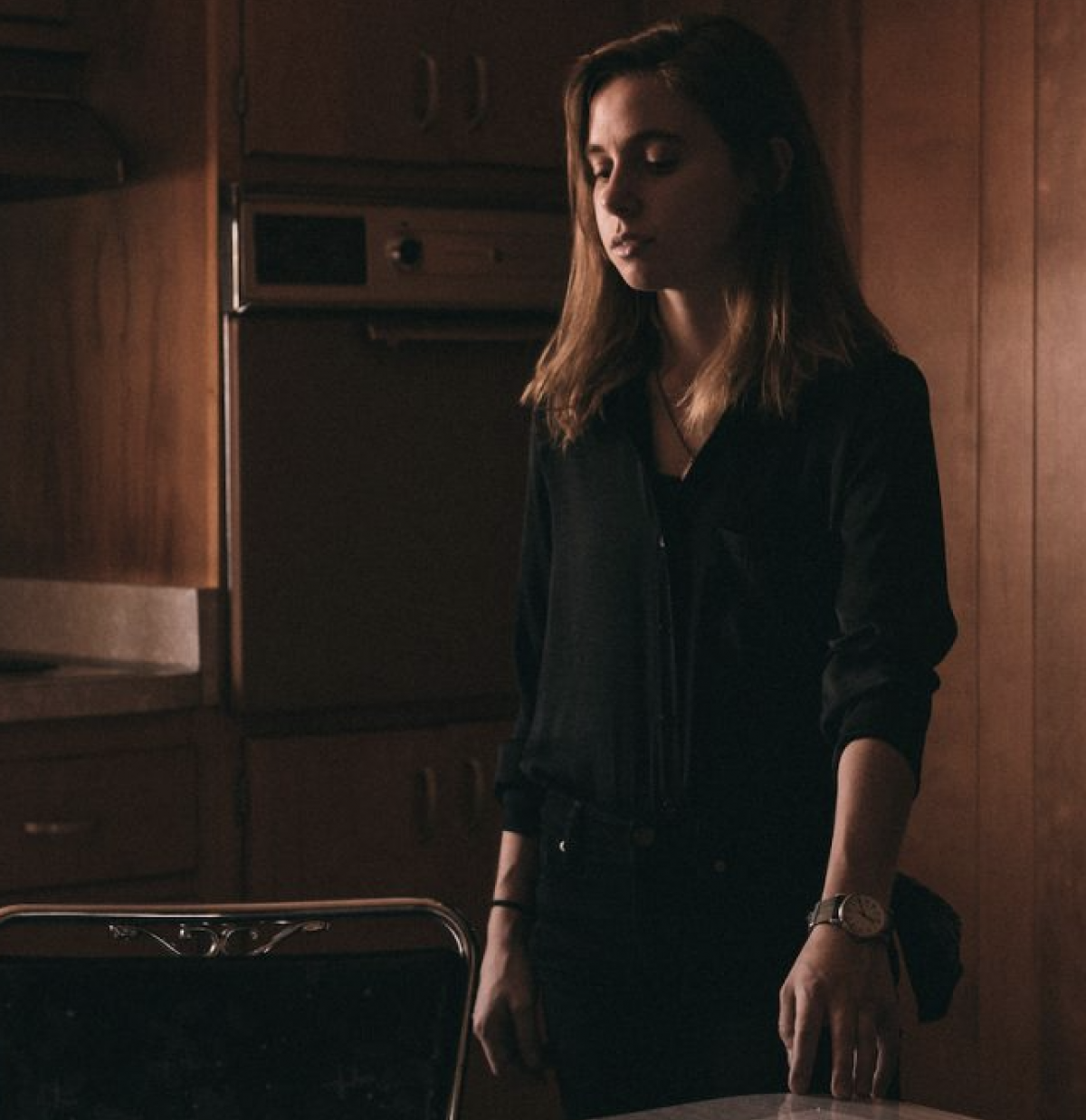
Julien Baker begins to make peace with her demons and the spotlight
Julien Baker was an 18-year-old at Middle Tennessee State University when she took a trip to Richmond, Va., to record an album with the help of a friend who had a couple days of studio time. It was private music made privately. Sprained Ankle featured little more than Baker’s guitar and voice, but it had the emotional intensity of a bloodletting. Baker’s roots are in punk-rock house concerts and emo—and also in Christianity—although Sprained Ankle has more of the coiled restraint of Sharon Van Etten or Torres. The self-aware, self-lacerating album quickly found an audience, and the teenager found herself talking to lots of journalists (including, for instance, The New Yorker, for a lengthy profile) and topping many best-of-2015 album lists.
Which totally changed the conditions for making her sophomore album, Turn Out The Lights (Matador). Baker, who recently turned 22 and is currently based in Nashville, is gracious, earnest and a bit breathless when talking about her creative process. She was on her way to being an English major in college when her music career interfered, and she likes to analyze through a critical lens.
“I write songs to process trauma or sadness,” she says. “Music is my primary method of coping with all of the things that I feel. I think on Sprained Ankle, until I started doing interviews about the subject matter of the songs, I did not realize that I had just had this moment of vomiting my feelings out and getting them down on a page.”
Baker also became aware of the tension between the private nature of the songs and the public nature of performance and popularity. “I joke about singing ‘Everybody Does’ (from Sprained Ankle) because sometimes if people sing along, I end up smiling so big, because it’s my favorite thing in the world when people sing along and I can hear all of their voices and not my own,” she says. “Then I realize that I’m beaming and singing this song about how I’m calling myself garbage and a piece of trash.”
Whereas Sprained Ankle was full of notes to self, Turn Out The Lights grows from conversations with friends—sometimes literally, as on “Even,” which is based on a debate Baker had about “whether a good person could do bad things and still be good.” The songs often hinge on reminders that struggle to find reasons for optimism. “Maybe it’s all gonna turn out all right/I know that it’s not, but I have to believe that it is,” she sings on “Appointments,” and that may be the album’s credo. Or maybe it’s “I don’t do too well when nobody’s worried about me,” from “Sour Breath.” In any case, Baker’s left an opening that allows for an audience to participate in something with a hint of redemption. And that’s deliberate.
“It’s almost an off-limits or taboo territory to talk about awareness of a listenership influencing a record’s creation, right?” she says. “Ideally, art would exist and be able to preserve its uninfluenced authenticity. But I think there’s something to be said for being honest. By merit of my own honesty or not, or just by happenstance or whatever combination of things, I’ve been afforded the great pleasure of a musical platform that is larger than others. That has made me aware of what my music could be utilized for, how it could be purposed. After years of touring in front of people and talking about it and deconstructing the subconscious themes of it in interviews, I wanted to write a record that allowed for other people’s voices to be elevated … I wanted this record to be more accessible as stories so that people could connect with it and feel that it wasn’t just me rehashing that self-centered narrative in a song.”
The distinction is most striking in the contrasting ways the two albums conclude. “Go Home,” Sprained Ankle’s closer, finishes with a wish to end one’s earthly suffering and pass on to heaven. “Claws In Your Back” is, instead, an affirmation: “I’m better off learning how to be living with demons mistaken for saints … I take it all back, I change my mind/I wanted to stay.”
While Baker’s lens has adjusted on Turn Out The Lights, she chose to keep the arrangements sparse when she recorded the album at Memphis’ famed Ardent Studios. She wanted to make sure to preserve the crux of the song, and she accompanies herself on guitar or piano, adorned with little more than some ghostly strings.
“I love the approach of less is more,” Baker says. “Not saying that my songs have necessarily achieved any of this, but think about the Leonard Cohens and Paul Simons and Patti Smiths of the world: What makes their songs great is that you could strip all the extras away, you could strip all the guitar solos and bass lines, and the poetry and the evocative human element of the songs would still be intact.”
Baker reserves the right to continue to evolve. “Maybe record three is like, ‘Let’s see how it sounds with a full band,’ which is something I’d love to do and probably will happen eventually,” she says. “It’s really scary, but it’s a good challenge for me.”
—Steve Klinge







